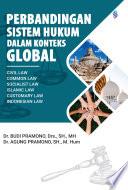The Muslim Brotherhood in Egypt
This book explores the development of the Muslim Brotherhood’s thinking on Islamic law and human rights, and argues that the Muslim Brotherhood has exacerbated, rather than solved, tensions between the two in Egypt. The organisation and its scholars have drawn on hard-line juristic opinions and reinvented certain concepts from Islamic traditions in ways that limit the scope of various human rights, and advocate for Islamic alternatives to international human rights. The Muslim Brotherhood’s practices in opposition and in power have been consistent with its literature. As an opposition party, it embraced human rights language in its struggle against an authoritarian regime, but advocated for broad restrictions on certain rights. However, its recent and short-lived experience in power provides evidence of its inclination to reinforce restrictions on religious freedom, freedom of expression and association, and the rights of religious minorities, and to reverse previous reforms related to women’s rights. The book concludes that the peaceful management of political and religious diversity in society cannot be realised under the Muslim Brotherhood’s model of a Shari‘a state. The study advocates for the drastic reformation of traditional Islamic law and state impartiality towards religion, as an alternative to the development of a Shari‘a state or exclusionary secularism. This transformation is, however, contingent upon significant long-term political and socio-cultural change, and it is clear that successfully expanding human rights protection in Egypt requires not the exclusion of Islamists, but their transformation. Islamists still have a large constituency and they are not the only actors who are ambivalent about human rights. Meanwhile, Islamic law also appears to continue to influence Egypt’s law. The book explores the prospects for certain constitutional and institutional measures to facilitate an evolutionary interpretation of Islamic law, provide a baseline of human rights and gradually integrate international human rights into Egyptian law.
This book explores the development of the Muslim Brotherhood’s thinking on Islamic law and human rights, and argues that the Muslim Brotherhood has exacerbated, rather than solved, tensions between the two in Egypt.









